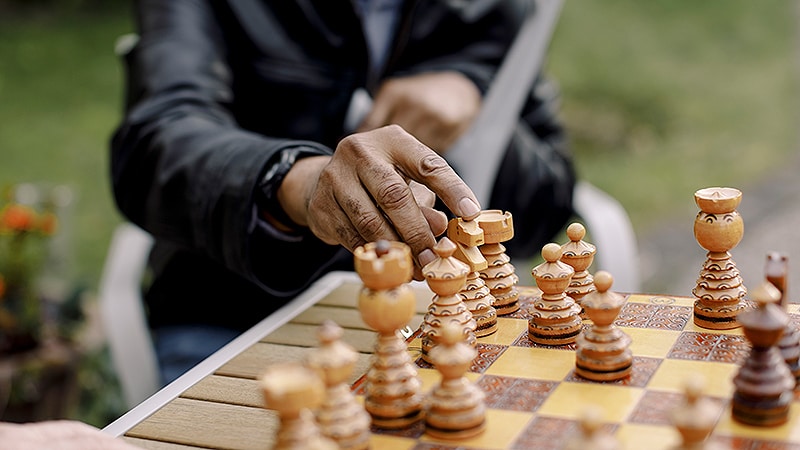Playing chess or other board games slows cognitive decline and improves quality of life in older patients, results of a new systematic review suggest.
“For patients who are elderly and suffer from social isolation and mild cognitive issues, I would definitely recommend board games,” study investigator Frederico Emanuele Pozzi, MD, a neurology resident at Fondazione IRCCS San Gerardo dei Tintori in Monza, Italy, told Medscape Medical News.
The findings were presented at the virtual XXVI World Congress of Neurology (WCN).
After searching the published literature, Pozzi and his colleagues selected 15 studies for the review. The studies assessed the impact of board games on older individuals at risk of, or with cognitive impairment, or those with mild cognitive impairment (MCI) at any age.
The studies included different board games including chess, Mahjong, and Go, a two-player game popular in China, Japan, and Korea that involves moving board pieces to surround and capture as much territory as possible.
Most interventions lasted about an hour and were held once or twice per week for 3-4 months.
Which Games Are Best?
Researchers found that board games improved cognitive function, as measured by improved scores on the Montreal Cognitive Assessment (P = .003) and Mini-Mental State Examination (P = .02).
Playing Go was linked with improved working memory, as measured by the Trail Making Test-A. Those who played Mahjong reported improved executive functioning and a temporary decrease in depressive symptoms. And chess players reported improved quality of life on the World Health Organization Quality of Life scale from playing chess (P < .00001).
In general, cognition improved across different populations. For example, some studies looked at unimpaired elderly while others looked at MCI, said Pozzi.
Playing board games in a social context appeared to be especially good at boosting brain power. One Japanese study included a control group that just did tai chi, a group that did Go alone on tablets, and another group that did Go in groups. Both Go groups improved cognitively, but participants who played together improved the most.
The results also seemed to suggest that Go and chess have different biological effects. “For example, Go increased [brain-derived neurotrophic factor] (BDNF) levels and metabolism in areas key for cognition like the middle temporal gyrus,” Pozzi said.
He noted that the methodology of the studies was generally “not bad” although in some cases the analyses were per protocol and in others intention-to-treat. Outcomes varied across studies, there were a lot of dropouts, and some were not randomized, meaning reverse causality can’t be ruled out.
Pozzi has started a randomized controlled trial at a Go and chess club in Italy. He’s enrolling patients aged 60 and over with subjective cognitive decline or MCI and separating participants into a control group, a group that plays chess, another that plays Go, and another that plays both Go and chess.
In addition to the standard cognitive tests, and measures of depression and quality of life, Pozzi aims to assess cognitive reserve and is in the process of validating a questionnaire that will look at leisure activities and lifestyle.
Social and Cognitive Value
Commenting on the research for Medscape Medical News, Vladimir Hachinski, MD, a professor of clinical neurological sciences at Western University in London, Ontario, Canada, said the results make sense.
Playing a board game involves concentration, strategy, and intermittent rewards — all of which are good for the brain and may involve the prefrontal cortex, he noted. Board games are also typically timed, which involves brain speed processing, and they have a winner and loser so emotions can run high, which also impacts the brain, Hachinski added.
There may also be social value in playing a board game with someone else, added Hachinski.
“It’s encouraging that people can improve what they’re doing, and the longer they’re at it, the more of the brain they use,” he said. “There might be a long-term effect because players are building up networks.”
But Hachinski cautioned that playing a lot of chess does not necessarily make you a better thinker, just as learning to play one instrument doesn’t mean you can automatically play others.
“Learning one skill will translate only partially to another, and only if it’s related,” he said. “It increases cognition in the area you’re practicing in, but it doesn’t spread to other areas.”
Pozzi and Hachinski report no relevant financial relationships.
XXVI World Congress of Neurology (WCN). Abstract #63. Presented October 17, 2023.
For more Medscape Neurology news, join us on Facebook and Twitter.
Source: Read Full Article
